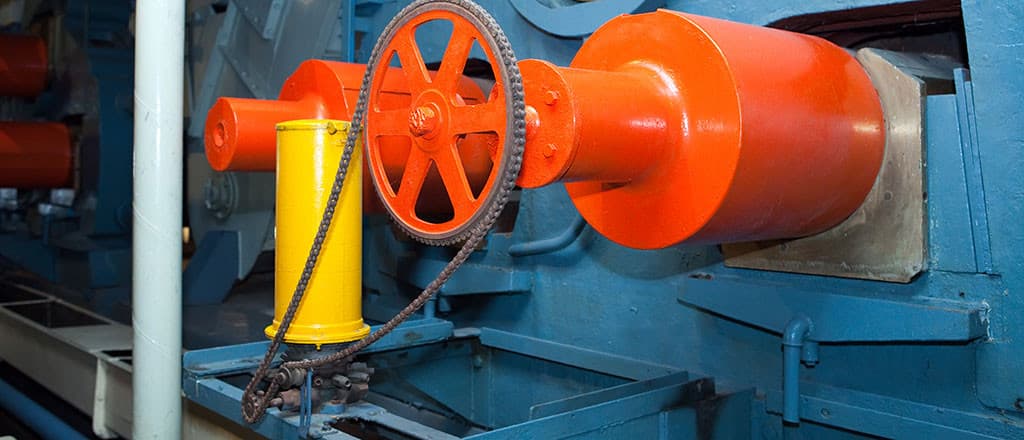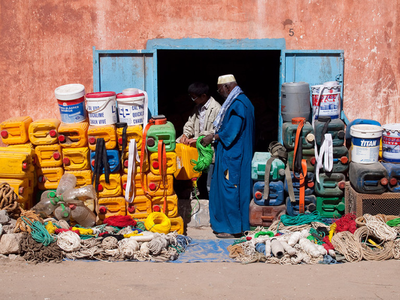First published on Nov 24, 2014 – http://knowledge.wharton.upenn.edu/article/how-africa-can-build-a-manufacturing-base/
When it comes to ramping up manufacturing in Africa, there are myriad impediments, but, given time and effort, they are surmountable, said participants on a panel titled, “Manufacturing: From Asian Tiger to African Lion?” at the recent Wharton Africa Business Forum in Philadelphia.
Chief among the reasons why Africa is not yet close to succeeding East Asia as a manufacturing center may be not that there is a lack of money, raw materials or labor, but rather a lack of governmental will.
“A number of years ago, I was doing my doctoral research and found that entrepreneurs are everywhere,” said James D. Thompson, co-founder and director of the Wharton Social Entrepreneurship Program. “All you have to do is write the rules of the game, and [entrepreneurs] will do what they are genetically pre-disposed to do. There’s a productive entrepreneurship that builds economies, but it needs rules to play by.”
Government as Collaborator
Herman Bigham, CEO of the environmentally conscious textile business Tosheka Textiles, said it was arduous setting up his business in Kenya, until he realized that his big step had to be getting the government on board with the nuances of manufacturing. “Our business is partially agribusiness, so we had to work with the cotton authority in Kenya,” said Bingham. “We had to take the lead and push [government officials] to be able to do things to which they are not accustomed. A lot of it, I think, is colonial mentality. It is inertia because people have a vested interest in not doing much differently. Now we are on speed dial with them, but that came from persistence and actually getting things started.”
Stephen Golub, professor of economics at Swarthmore College and consultant to African businesses, called the last move to establish manufacturing in Africa “a catastrophe.” In the 1960s and 1970s, he said, African nations started manufacturing for their domestic markets, but those markets were not big enough to sustain long-term profits. He added that it’s important for those African nations that can to give it another try.
“Why is manufacturing important? First it creates jobs,” said Golub. “Number two, being competitive in anything in the world market forces you to be efficient in whatever you do. Third, you get to integrate into the world economy — and that way you get technology transfer, which helps society in general.
“We have to plan now as an African people based on African models of success.”– Herman Bigham
“Africa just has not been competitive,” he continued. “It has little manufacturing and almost no labor-intensive manufacturing, so it is not creating jobs. And even there, wages are low. It is time to move forward.”
Kunmi Otitoju, CEO of Minku, a designer accessories business based in Nigeria, said she is worried about the future of manufacturing in Africa because it seems to depend on foreign investment and foreign ideas of what should be manufactured there. “Your job is only as secure as the time it takes for a machine to do something cheaper. If you are not in the community, you do not care about the jobs, and so there is no guarantee for a long-term solution,” she said. Otitoju uses Nigerian raw materials and designs for her products. “I would think maybe a more concerted effort to look at indigenous [efforts] and seeing how we can channel them into finished goods is the way to go.
Tugba Gurcanlar, a private sector development specialist for the World Bank Group, has done extensive work in Africa. She said that each country has its own impediments, even when seeing a chance for manufacturing to work. “If you’re going to work in some places in East Africa, you have to worry about cattle disease and how that will affect your workers and your exports,” she said. “If you’re going to promote green beans in Kenya, you have to work with the government, which may be uncooperative. If you’re going to [open] metal industries in Ethiopia, you have to figure out how to get access to industrial lands, which is often difficult.”
Golub acknowledged there is some niche manufacturing going on in Africa, but that manufacturers who want to go further oftentimes meet either red tape or indifference, and certainly little cooperation from government. “There is tons of entrepreneurial talent in Africa, but the rules are not very good,” he said. “The rules have to get better, so you can channel entrepreneurs in a more positive way.”
Infrastructure Issues
Golub pointed also to structural problems that many Asian governments have dealt with and that African ones seem not to care much about. All of the panelists said power outages at inopportune and random times are common in Africa, which is disastrous for manufacturing, an industry that needs consistent power. “Power is the number one issue in that regard. It is a matter of the public good,” said Golub. “It is an issue that shows whether government is doing its job. Look at South Korea: zero power outages, end of story.”
“Doing what Africa is good at — as opposed to making us adapt to something else — is what will work.”– Kunmi Otitoju
Otitoju contends with power outages, which happen even in more developed countries like Nigeria, where her business is based. She said it is almost a given that everyone learns to deal with at some point. “Electricity is almost a luxury in Nigeria,” she said. “You iron your clothes and you charge your cellphones when the electricity goes on. You make your peace with that, but imagine if we could get regular electricity. We need to look at things like that and get some cooperation on it.”….. Read more


